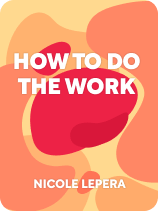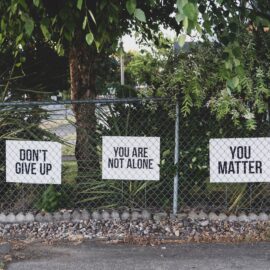

This article is an excerpt from the Shortform book guide to "How to Do the Work" by Nicole LePera. Shortform has the world's best summaries and analyses of books you should be reading.
Like this article? Sign up for a free trial here.
What causes you to have inner child wounds and what are the effects? How can you identify your own inner child wounds?
Psychologist Nicole LePera argues that, whenever your parents made you feel unloved and insecure, you felt extreme pain and discomfort. Since you hadn’t yet developed the emotional skills to cope with your inner turmoil, you formed damaging inner child wounds.
Keep reading to learn the six causes and effects of inner child wounds, according to LePera.
Reflect on Inner Child Wounds and Where They Came From
Reflecting on your inner child wounds will help determine the origin of the thoughts, emotions, and behaviors that underlie the self-sabotaging patterns you learned during childhood.
LePera argues that parents trigger inner child wounds by practicing at least one of six different behaviors. Therefore, you can identify the experiences that lie at the root of your self-sabotaging patterns by reflecting on how you felt and reacted if your parents engaged in any of the following behaviors:
1: Invalidated Your Feelings
For example, you told them your worries about something and they told you to get over it. This made you feel as if your feelings didn’t matter. The inner child wound that formed as a result caused you to begin dismissing your feelings and stopped expressing them to others.
2: Ignored You, Making You Work for Attention
For example, your mother was too focused on her to-do list to acknowledge your presence. You felt unwanted, and you forced her to give you attention by behaving in ways that provoked her anger.
3: Pushed You to Be Who They Wanted
For example, your parents frequently berated you for not being as good a student as your sibling. You felt like they didn’t care about your interests, resulting in an inner child wound. You resented having to try so hard to please them.
4: Violated Your Personal Space or Privacy
For example, your father listened in on your conversations with friends. You resented him for invading your privacy, felt stifled, and found it difficult to trust others.
5: Fixated on How You Appeared to Others
For example, your parents criticized you for being overweight and restricted your diet—this forms an inner child wound focused on your self-perception. You felt ashamed of your appearance, resented your parents for not loving you as you were, and sought comfort in binge-eating.
6: Failed to Healthily Express Their Emotions
For example, your mother flew into a violent rage each time you disappointed her. After each outburst, she would refuse to talk to you for a few days. The inner child wound that formed caused you to feel unsafe and unloved. You didn’t know what you could do to appease her, withdrawing into yourself and avoiding any unnecessary interactions with her.

———End of Preview———
Like what you just read? Read the rest of the world's best book summary and analysis of Nicole LePera's "How to Do the Work" at Shortform.
Here's what you'll find in our full How to Do the Work summary:
- How childhood conditioning impacts your mental and physical health
- How to develop positive patterns that improve your well-being
- Tools to feel happier, healthier, and more in control of your life






